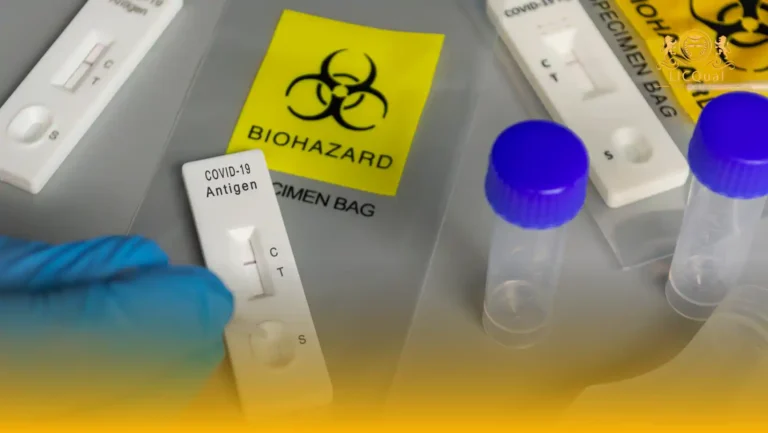The LICQual Level 6 Diploma in Clinical Dermatology (Dip CD) is an advanced qualification specifically designed for healthcare professionals and practitioners seeking to deepen their expertise in clinical dermatology. This diploma is ideal for learners who already have a background in medical or healthcare practice and are looking to enhance their career prospects, expand their knowledge, and advance their Continuing Professional Development (CPD). It is not intended for fresh candidates but rather for committed professionals aiming for excellence in dermatological practice.
This comprehensive programme equips learners with a thorough understanding of complex dermatological conditions, advanced diagnostic techniques, and evidence-based treatment approaches. Learners will gain both theoretical knowledge and practical skills, ensuring they can apply best practices in clinical settings safely and effectively.
Centres delivering this qualification are required to uphold the highest standards of education and training. This includes employing competent and qualified staff and providing learners with access to all necessary materials, equipment, and resources to support successful learning outcomes. Such rigorous standards guarantee that every learner receives a high-quality educational experience, enabling them to develop the skills and confidence needed to excel in the field of clinical dermatology.
By completing the LICQual Level 6 Diploma in Clinical Dermatology, learners can demonstrate professional competency, strengthen their clinical expertise, and achieve recognised credentials that reflect dedication, skill, and advanced knowledge in dermatology.
Course Overview
Qualification Title
LICQual Level 6 Diploma in Clinical Dermatology (Dip CD)
Total Units
6
Total Credits
120
GLH
480
Qualification #
LICQ2200912
Qualification Specification
To enroll in the LICQual Level 6 Diploma in Clinical Dermatology (Dip CD), applicants must meet the following criteria:
|
Qualification# |
Unit Title |
Credits |
GLH |
|---|---|---|---|
|
LICQ2200912-1 |
Advanced Skin Anatomy and Physiology |
20 |
80 |
|
LICQ2200912-2 |
Dermatological Assessment and Diagnosis |
20 |
80 |
|
LICQ2200912-3 |
Clinical Management of Skin Conditions |
20 |
80 |
|
LICQ2200912-4 |
Advanced Therapeutic Procedures |
20 |
80 |
|
LICQ2200912-5 |
Professional Practice and Ethics in Dermatology |
20 |
80 |
|
LICQ2200912-6 |
Clinical Case Studies and Applied Practice |
20 |
80 |
By the end of this course, learners will be able to:
Unit 1: Advanced Skin Anatomy and Physiology
- Demonstrate an in-depth understanding of skin structure and cellular biology.
- Explain the physiological processes of skin ageing, pigmentation, and repair.
- Analyse the relationship between skin health and systemic conditions.
- Evaluate molecular mechanisms that influence skin function and disease development.
Unit 2: Dermatological Assessment and Diagnosis
- Conduct comprehensive patient assessments, including history taking and examination.
- Recognise and differentiate between complex dermatological conditions.
- Apply diagnostic tools such as dermoscopy, imaging, and laboratory tests effectively.
- Formulate accurate differential diagnoses and develop evidence-based treatment plans.
Unit 3: Clinical Management of Skin Conditions
- Apply evidence-based strategies to manage inflammatory, infectious, and autoimmune skin disorders.
- Develop personalised treatment plans considering patient history and condition severity.
- Monitor and evaluate treatment effectiveness and adjust management plans accordingly.
- Understand prescribing considerations and therapeutic interventions in dermatology practice.
Unit 4: Advanced Therapeutic Procedures
- Demonstrate knowledge of advanced clinical procedures, including minor surgery, laser therapy, and phototherapy.
- Implement safety, hygiene, and risk management protocols during clinical procedures.
- Provide appropriate pre- and post-procedure care and patient education.
- Identify, manage, and respond to complications or adverse reactions effectively.
Unit 5: Professional Practice and Ethics in Dermatology
- Apply legal and ethical principles in dermatology practice.
- Maintain patient confidentiality and uphold professional standards.
- Keep accurate and comprehensive clinical records.
- Engage in ongoing Continuing Professional Development (CPD) and evidence-based practice.
Unit 6: Clinical Case Studies and Applied Practice
- Analyse complex dermatology case studies to enhance clinical reasoning skills.
- Apply theoretical knowledge to practical, real-world scenarios.
- Demonstrate problem-solving and critical thinking in clinical decision-making.
- Reflect on practice to evaluate outcomes and improve professional competency.
The LICQual Level 6 Diploma in Clinical Dermatology (Dip CD) is designed for healthcare professionals who want to advance their expertise in skin health, diagnosis, and treatment. This internationally recognized dermatology diploma is ideal for doctors, nurses, and medical practitioners seeking to specialize, enhance their clinical skills, and gain a qualification that is valued worldwide. Whether you are looking to progress in your current role, move into private practice, or expand your academic profile, this program provides the knowledge and credibility to achieve your goals.
1. Medical Doctors and Physicians
- Enhance clinical expertise in dermatological diagnosis and treatment
- Gain an accredited dermatology diploma recognized internationally
- Strengthen professional credibility with a Level 6 qualification
- Expand opportunities in private practice and hospital settings
- Stay updated with evidence-based dermatology practices
- Build a foundation for further specialization or postgraduate study
2. Nurses and Advanced Nurse Practitioners
- Develop advanced dermatology knowledge for patient care
- Improve clinical decision-making in skin health management
- Earn a globally recognized dermatology qualification
- Increase career opportunities in dermatology clinics and hospitals
- Support multidisciplinary teams with specialized expertise
- Gain confidence in managing common and complex skin conditions
3. Healthcare Professionals in Primary Care
- Learn to identify and manage dermatological conditions early
- Provide better patient outcomes through accurate referrals
- Strengthen clinical practice with dermatology-focused training
- Add value to general practice with specialized knowledge
- Improve patient trust and satisfaction with advanced skills
- Enhance career progression in community healthcare settings
4. International Medical Graduates
- Obtain a qualification recognized across the UK, Middle East, and Asia
- Strengthen professional profiles for global career opportunities
- Meet international healthcare and accreditation standards
- Gain credibility when applying for advanced clinical roles
- Access flexible online study options while working abroad
- Build a competitive edge in international healthcare markets
5. Professionals Seeking Private Practice Opportunities
- Acquire specialized dermatology skills for independent practice
- Increase patient demand with accredited qualifications
- Offer advanced dermatology services in private clinics
- Build a reputation as a trusted dermatology practitioner
- Expand earning potential through specialized expertise
- Position yourself as a leader in clinical dermatology care
6. Academic and Research Professionals
- Strengthen academic credentials with a Level 6 dermatology diploma
- Contribute to dermatology research and publications
- Gain structured knowledge aligned with international standards
- Support teaching roles in medical and healthcare education
- Enhance credibility in academic and professional networks
- Build a pathway toward higher-level qualifications and research
7. Career Changers within Healthcare
- Transition into dermatology from other medical specialties
- Gain structured training to build new expertise
- Access flexible study options while maintaining current roles
- Earn a qualification that supports career mobility
- Open doors to new opportunities in clinical dermatology
- Build confidence in delivering dermatology-focused patient care
To ensure the highest quality of training and learner success, centres delivering the LICQual Level 6 Diploma in Clinical Dermatology must meet the following requirements:
- Qualified and Experienced Staff: Centres must employ highly qualified and competent instructors with professional experience in clinical dermatology and advanced healthcare practice.
- Training Facilities: Centres should provide well-equipped classrooms and clinical spaces suitable for both theoretical instruction and practical demonstrations.
- Access to Clinical Equipment and Materials: Learners must have access to all necessary tools, medical equipment, and learning resources, including diagnostic instruments, treatment supplies, and reference materials.
- Health and Safety Compliance: Centres must adhere to current health, safety, and hygiene regulations, ensuring a safe learning environment for learners and staff.
- Assessment and Support Resources: Centres must provide comprehensive learning materials, assessment tools, and guidance, supporting learners in achieving competence and completing the qualification successfully.
- Continuing Professional Development (CPD) Support: Centres should encourage learners’ ongoing professional development by providing CPD opportunities aligned with best practice in dermatology.
- Quality Assurance and Monitoring: Centres must maintain robust quality assurance systems to monitor training delivery, learner progress, and overall programme effectiveness.
Meeting these centre requirements ensures that learners receive high-quality education, practical experience, and professional support, preparing them to excel in clinical dermatology and achieve recognised professional qualifications.
Assessment and Verification
All units within this qualification are subject to internal assessment by the approved centre and external verification by LICQual. The qualification follows a criterion-referenced assessment approach, ensuring that learners meet all specified learning outcomes.
To achieve a ‘Pass’ in any unit, learners must provide valid, sufficient, and authentic evidence demonstrating their attainment of all learning outcomes and compliance with the prescribed assessment criteria. The Assessor is responsible for evaluating the evidence and determining whether the learner has successfully met the required standards.
Assessors must maintain a clear and comprehensive audit trail, documenting the basis for their assessment decisions to ensure transparency, consistency, and compliance with quality assurance requirements.







